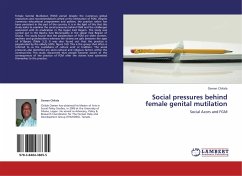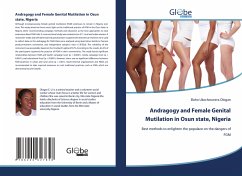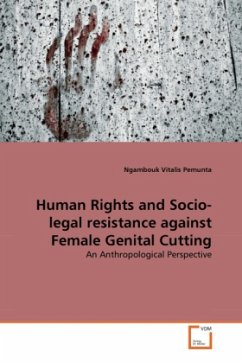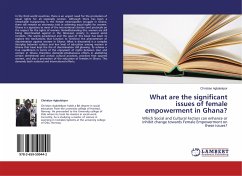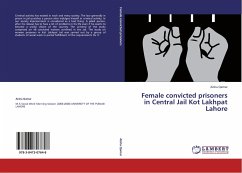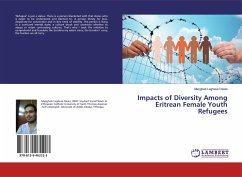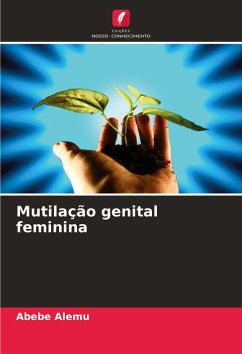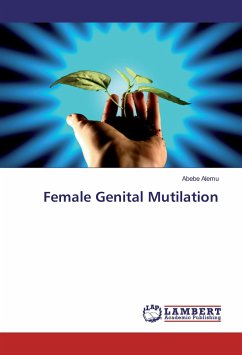
Female Genital Mutilation
Versandkostenfrei!
Versandfertig in 6-10 Tagen
24,99 €
inkl. MwSt.

PAYBACK Punkte
12 °P sammeln!
This study focuses on the prevalence of Female Genital Mutilation (FGM), cultural beliefs and magnitude of the practice, consequences involved after the mutilation, and challenges and critical institutional gaps in fighting FGM in Shebedino and Gorichie districts in Ethiopia. The results indicated that the practice and experience of FGM is highly prevalent in Shebedino and Gorichie districts. All people including the district officials, religious leaders, community elders, teachers and civil servants (educated or not educated) are practicing it upon their children due to cultural beliefs and l...
This study focuses on the prevalence of Female Genital Mutilation (FGM), cultural beliefs and magnitude of the practice, consequences involved after the mutilation, and challenges and critical institutional gaps in fighting FGM in Shebedino and Gorichie districts in Ethiopia. The results indicated that the practice and experience of FGM is highly prevalent in Shebedino and Gorichie districts. All people including the district officials, religious leaders, community elders, teachers and civil servants (educated or not educated) are practicing it upon their children due to cultural beliefs and long standing societal attitude/culture characterized by imbalanced gender relations, economic factors, lack of awareness on the adverse effects of the practices and legal and policy frameworks. The results further indicated that females suffer from a number of physical, psychological and social problems as a result of being a victim of genital mutilation. Therefore empowering people in the community with knowledge on the issue of FGM and providing the necessary resources will help eliminating the practice.



